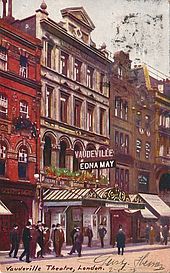
Comic opera, sometimes known as light opera, is a sung dramatic work of a light or comic nature, usually with a happy ending and often including spoken dialogue.

The D'Oyly Carte Opera Company is a professional British light opera company which, from the 1870s until 1982, staged Gilbert and Sullivan's Savoy operas nearly year-round in the UK and sometimes toured in Europe, North America and elsewhere. The company was revived for short seasons and tours from 1988 to 2003, and since 2013 it has co-produced four of the operas with Scottish Opera.
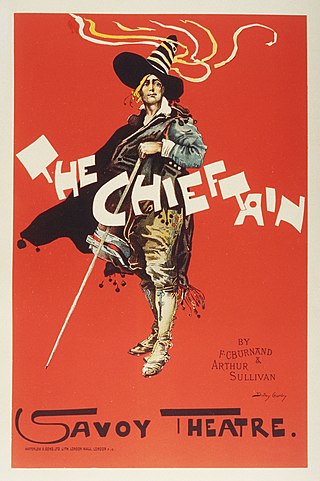
The Chieftain is a two-act comic opera by Arthur Sullivan and F. C. Burnand based on their 1867 opera, The Contrabandista. It consists of substantially the same first act as the 1867 work with a completely new second act. It premiered at the Savoy Theatre on December 12, 1894, under the management of Richard D'Oyly Carte, for a run of 97 performances.
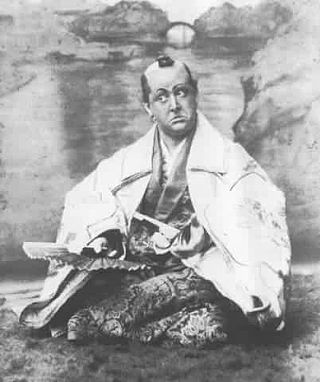
Rutland Barrington was an English singer, actor, comedian and Edwardian musical comedy star. Best remembered for originating the lyric baritone roles in the Gilbert and Sullivan operas from 1877 to 1896, his performing career spanned more than four decades. He also wrote at least a dozen works for the stage.

Jessie Charlotte Bond was an English singer and actress best known for creating the mezzo-soprano soubrette roles in the Gilbert and Sullivan comic operas. She spent twenty years on the stage, the bulk of them with the D'Oyly Carte Opera Company.

Richard Barker Cobb Temple was an English opera singer, actor and stage director, best known for his performances in the bass-baritone roles in the famous series of Gilbert and Sullivan comic operas.

Rosina Brandram was an English opera singer and actress primarily known for creating many of the contralto roles in the Savoy operas with the D'Oyly Carte Opera Company.

Charles Courtice Pounds, better known by the stage name Courtice Pounds, was an English singer and actor known for his performances in the tenor roles of the Savoy Operas with the D'Oyly Carte Opera Company and his later roles in Shakespeare plays and Edwardian musical comedies.

George Tyrell Thorne was an English singer and actor, best known for his performances in the comic baritone roles of the Savoy Operas with the D'Oyly Carte Opera Company, especially on tour and in the original New York City productions. He married D'Oyly Carte chorister Geraldine Thompson.

The Nautch Girl, or, The Rajah of Chutneypore is a comic opera in two acts, with music by Edward Solomon, a book by George Dance, and lyrics by Dance and Frank Desprez. It opened on 30 June 1891 at the Savoy Theatre, managed by Richard D'Oyly Carte, and ran until 16 January 1892, for a respectable 200 performances, and then Carte toured the piece in the British provinces and colonies.

After All! is a one-act comic opera with a libretto by Frank Desprez and music by Alfred Cellier. It was first performed at the Savoy Theatre under the management of Richard D'Oyly Carte, along with H.M.S. Pinafore and another short piece, Cups and Saucers, from December 1878 to February 1880.
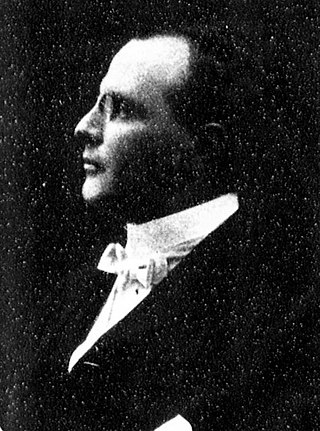
Howard Munkittrick, better known as Howard Talbot, was an American-born, English-raised conductor and composer of Irish descent. He was best known for writing the music to several hit Edwardian musical comedies, including A Chinese Honeymoon, The Arcadians and The Boy, as well as a number of other successful British musicals during the first two decades of the 20th century.

Louisa Emma Amelia "Louie" Pounds was an English singer and actress, known for her performances in musical comedies and in mezzo-soprano roles with the D'Oyly Carte Opera Company.

Charles Kenningham was an English opera singer and actor best remembered for his roles in the 1890s with the D'Oyly Carte Opera Company.
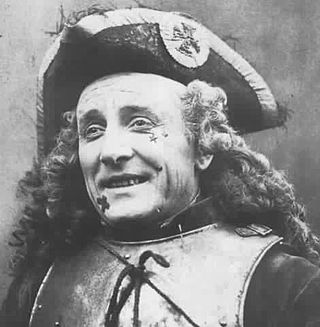
Frank Wyatt was an English actor, singer, theatre manager and playwright.

Ellen Sophia Taylor, known professionally as Sybil Grey, was a British singer and actress during the Victorian era best known for creating a series of minor roles in productions by the D'Oyly Carte Opera Company, including roles in several of the famous Gilbert and Sullivan operas, from 1880 to 1888. Afterwards, she went on to a long West End theatre career, appearing in both musical theatre and plays.

Avon Dawson Saxon was a Canadian operatic and concert singer who created the role of Friar Tuck in the romantic opera Ivanhoe (1891) by Arthur Sullivan and Julian Sturgis and Francal in Mirette by André Messager at the Savoy Theatre in 1894.

Amy Florence Augarde was an English actress and singer in musical theatre and operetta.
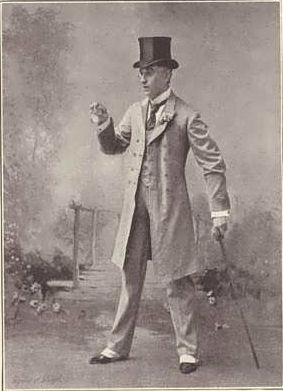
Herbert Sparling (1864–1944) was a British comedy and musical theatre actor and director.
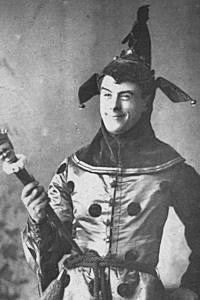
Lewis Cairns James was a Scottish-born baritone, actor, educator and opera producer most prominent during the Victorian and Edwardian eras. From 1887 to 1891 he performed with a D'Oyly Carte Opera Company touring company performing the comic operas of Gilbert and Sullivan before embarking on a successful career on the West End stage and as a teacher of elocution.

